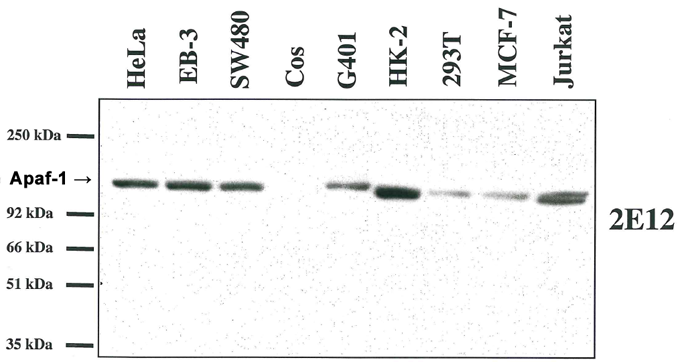anti-Apaf-1 (human) mAb (2E12)
Product Code:
AG-20T-0132
AG-20T-0132
Antibody Clonality:
Monoclonal
Monoclonal
Regulatory Status:
RUO
RUO
Target Species:
- Human
- Mouse
Applications:
- Enzyme-Linked Immunosorbent Assay (ELISA)
- Immunocytochemistry (ICC)
- Immunohistochemistry (IHC)
- Immunoprecipitation (IP)
- Western Blot (WB)
Shipping:
Blue Ice
Blue Ice
Storage:
Short term: +4°C. Long term: -20°C
Short term: +4°C. Long term: -20°C
No additional charges, what you see is what you pay! *
| Code | Size | Price |
|---|
| AG-20T-0132-C100 | 100 ug | £271.00 |
Prices exclude any Taxes / VAT



